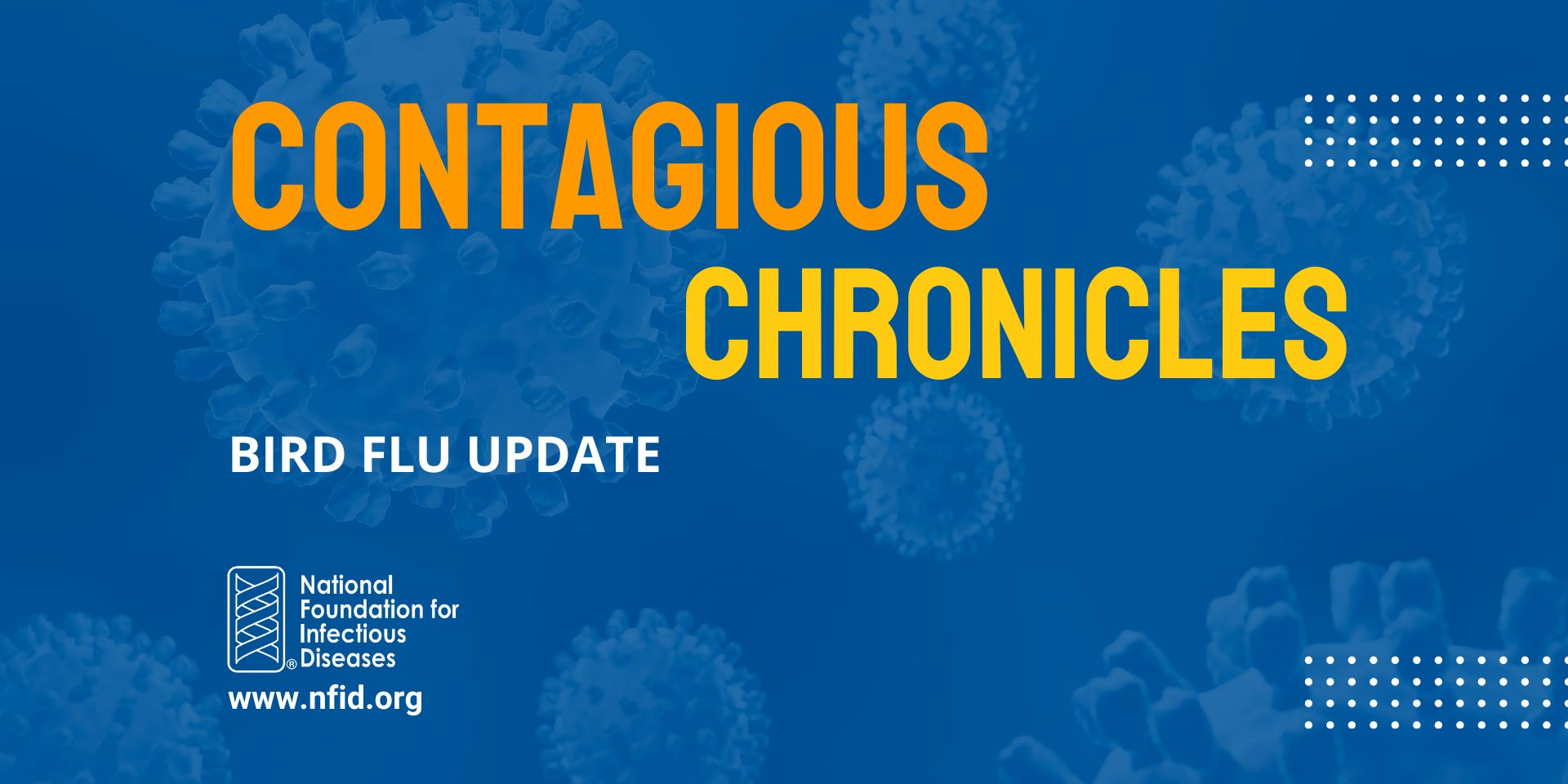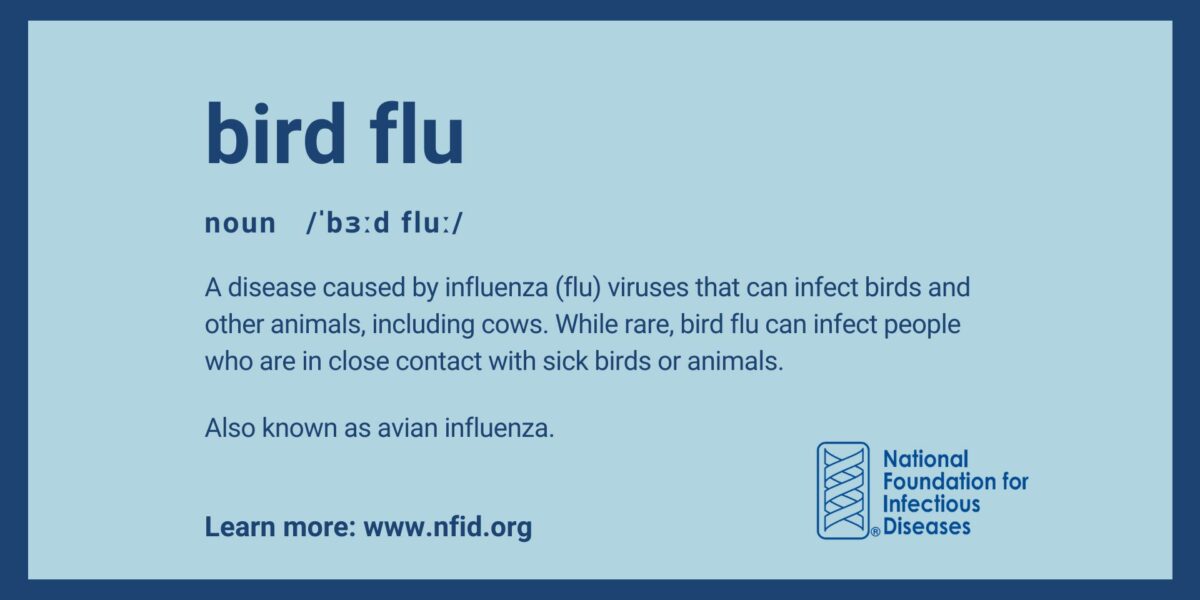
In this episode, NFID experts discuss avian influenza or A(H5N1), also known as bird flu, which has been causing outbreaks in poultry and dairy cows in several states throughout the US.
Key highlights:
- H5N1 is a highly pathogenic influenza virus affecting poultry and dairy cows in several US states
- The virus has been circulating in birds since the 1990s and causes high mortality in infected birds, but the general public is at low risk and can safely consume milk, eggs, chicken, and beef
- H5N1 currently lacks the genetic capacity to infect humans readily or transmit from person to person
- Individuals can take certain precautions:
- Avoid unprotected contact with sick or dead animals and their droppings
- Ensure proper cooking of food and maintain good hygiene practices, such as handwashing
- Do not drink unpasteurized milk
- Personal protective equipment (PPE) is recommended for those working with poultry or dairy cows
- Public health efforts include global monitoring by the World Health Organization, developing a bird flu vaccine blueprint, and outreach to the dairy and poultry industries
- Current influenza antiviral medications like oseltamivir are effective against H5N1
- Stay informed and updated with reliable information and do not panic
Reviewed January 2025
If you have a burning question for an NFID expert, please submit it via the online form. Your question may show up in a future episode of Contagious Chronicles.
Related Resources

